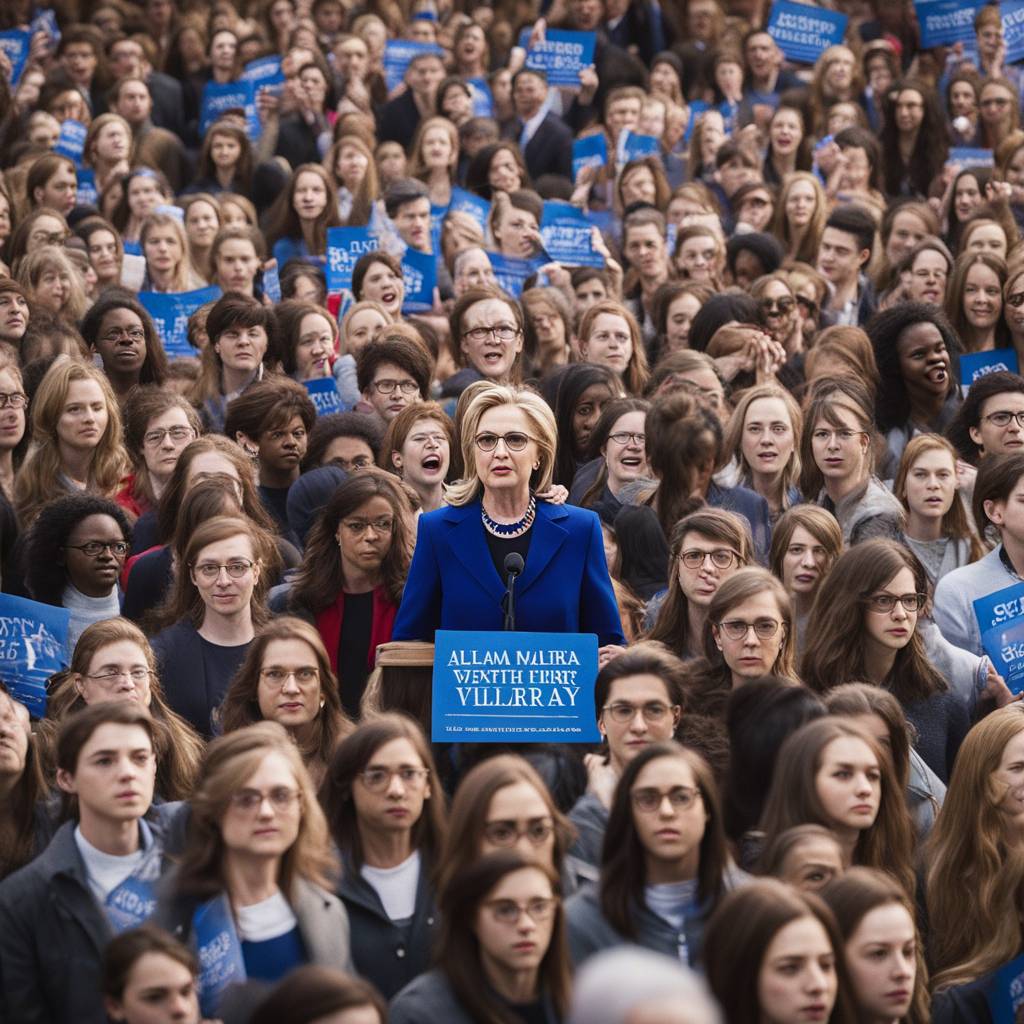Former Secretary of State Hillary Clinton faced student protests at Wellesley College during a visit to receive an honor of having a college building named after her. Protesters disrupted a women-led democracy summit on campus where Clinton was present and circulated pamphlets labeling her as a “beloved war criminal” with “blood on her hands.” School administrators acknowledged the protest but did not condemn it, instead reminding activists to follow the demonstration policy and student conduct code for everyone’s safety. This is not the first time Clinton has faced protests during her visits to American universities, as she was also interrupted at Columbia University earlier in the year.
The protest at Wellesley occurred just days after Clinton criticized U.S. voters during an appearance on the “Tonight Show” with Jimmy Fallon. She encouraged voters to “get over yourself” and realize that former President Trump and President Biden are the only two choices, emphasizing the differences between the two candidates. Clinton expressed concern about the state of the country and the type of democracy that could be at stake if voters do not pay attention to the choices they are making. She warned that Trump and his allies are clear about their intentions for the country, urging voters to consider the implications of their decision.
The demonstration at Wellesley College marks another instance of student activism against political figures, as Clinton was referred to as a “war criminal” by protesters. The university, known for its history of student activism and feminist movements, was the backdrop for this protest, which garnered attention from local news outlets. The protest reflects a broader trend of increased political engagement and activism among college students, who are taking a stand against politicians and policies they oppose. As universities become centers of activism and social change, protests like the one at Wellesley are likely to continue in the future.
Clinton’s visit to Wellesley also highlighted the complexities of public figures engaging with young voters and facing criticism from student activists. While Clinton tried to convey the urgency of the upcoming election and the need for voters to make informed decisions, she faced backlash from protesters who viewed her as a controversial and divisive figure. This tension between political leaders and student activists underscores the challenges of communicating with younger generations and mobilizing their support. Clinton’s remarks on the show and the protest at Wellesley point to a broader conversation about the role of student activism in shaping political discourse and holding public figures accountable.
In response to the protest at Wellesley College, school administrators emphasized the importance of following guidelines for demonstrations and student conduct to ensure the safety of everyone involved. The protest sparked a debate about free speech, activism, and the role of public figures in engaging with student activists. As universities continue to be hubs of political engagement and social change, protests against politicians like Clinton are likely to increase, raising questions about how political leaders can navigate these interactions and communicate with younger generations. The incident at Wellesley serves as a reminder of the power of student activism to challenge authority and provoke discussions about social and political issues on college campuses.
Overall, the protest at Wellesley College and Hillary Clinton’s remarks on the “Tonight Show” highlight the complexities and tensions surrounding political engagement, activism, and public discourse. As the country prepares for upcoming elections and debates, the incident at Wellesley underscores the importance of listening to diverse perspectives, engaging with student activists, and promoting civil discourse. The clash between Clinton and protesters offers a glimpse into the broader landscape of student activism and political engagement, suggesting that these interactions will continue to shape the national conversation and influence the outcomes of future elections. As public figures like Clinton navigate these complex dynamics, they must be prepared to address criticism, engage with dissenting voices, and adapt their approaches to effectively communicate with younger generations.


